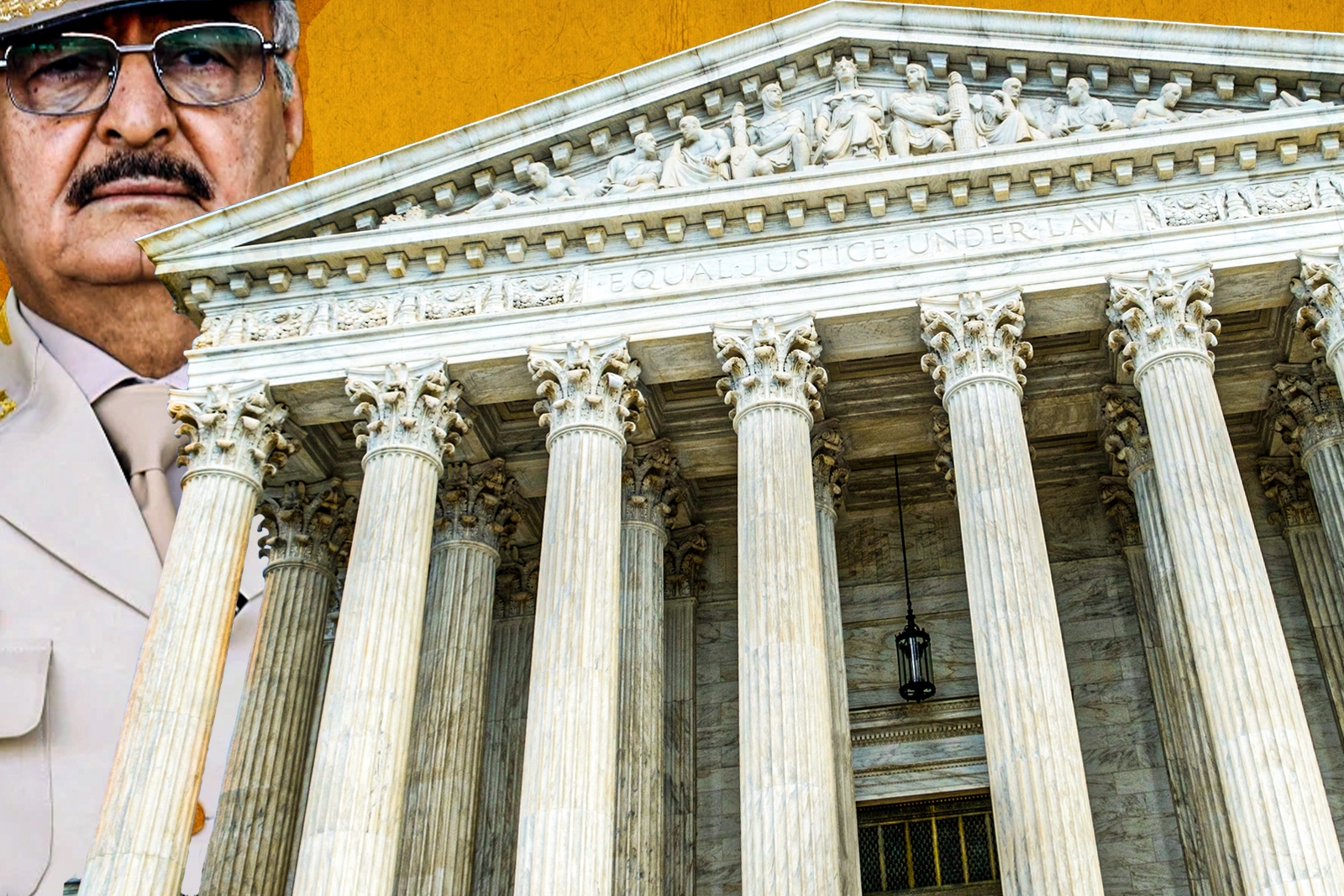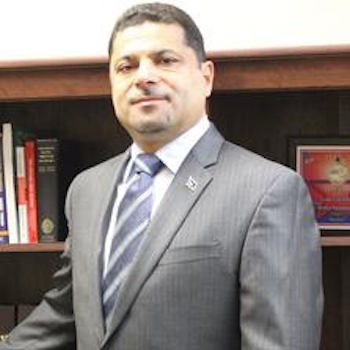
U.S. Court Rules Haftar Responsible for War Crimes
Two weeks ago, a federal court in Virginia issued a ruling that is quite rare and may be internationally significant. On Friday, Judge Leonie Brinkema found Khalifa Haftar, an American citizen, responsible for war crimes he committed in Libya.
Under American law, citizens can be held civilly liable for the damages they cause during the commission of war crimes. Judge Brinkema ruled that Haftar owes the victims of his actions and that he is liable for the injuries and losses they suffered at his direction.
If you don’t know who Khalifa Haftar is, that’s understandable. Though his history has been colorful and tragic, it has not captured the headlines it deserves. Haftar is a warlord, in charge of a military force currently backed by Russia and Russian proxy clients. He has alternatively been an asset of the CIA, a loyal supporter of Muammar Qaddafi, invited by the United Nations to join peace talks, and welcomed in the capitals of Europe. Haftar has named himself a Field Marshal. He used to call himself a General. He is an American. He has a house in Virginia.
And this week he has a new title – albeit one he did not choose – a war criminal.
Yes, an American war criminal.
This is not a nominal ruling and will have many sizable unplanned reverberations including opening the door for a criminal investigation by the U.S. Department of Justice.
For one thing, an American court holding one of its citizens responsible for war crimes committed in another country feels noteworthy, like how we want justice to be – blind to all but the facts. The Court heard the victims, studied the law, and issued a responsible ruling. The Court spoke that conduct – even in war, even in a place as fraught as Libya – has consequences. The Court said that the law will hold people accountable for what they do no matter what, which has, at times, been an American value.
But farther afield, the ruling may unintentionally alter the depressing dynamics in Libya and maybe even in places such as Ukraine.
In Libya, the Haftar judgment may marginalize him. That would be significant because, inexplicable as it is, and despite changing sides more often than the weather, Haftar has continued to be invited to peace talks and welcomed in the political halls of Europe. European and American politicians and diplomats need to be wary. After all, the mens rea for aiding and abetting war criminals under customary law requires only knowledge and not purpose.
It’s true that someone with flexible loyalties and an army probably retains some value, especially to countries such as Russia that are desperate for friends and resources in places that can pressure or embarrass Europe or the United States. Libya is one of those places. Maybe being an official war criminal will crimp Haftar’s influence somewhat, in some places. That alone would be a major advance for the prospects of a stable, peaceful Libya.
Moreover, as we’ve seen in Syria and now in Ukraine, Russia has been aggressive in seizing whatever it thinks it can take. And Libya is a major prize, strategically vital, and oil-rich. Given the sanctions and multilateral investments that the United States and our allies have made in Ukraine, it seems foolish to allow Russia a free hand in Libya – or anywhere for that matter.
As such, sidelining one of Russia’s main military surrogates in Libya seems important. It’s unfortunate that the United States and others have declined to pursue that goal directly. But that a Virginia Court may have weakened Russia’s hand in Libya, even inadvertently, is beneficial.
Even with all that – the symbolism of self-accountability, limiting Russia’s reach – the case was fundamentally about justice for victims. A man did bad things and people suffered. He probably assumed no one would know or care what happened in Libya. He did ask the Court to excuse him from liability. But it did not matter because in the United States our courts allow victims to ask for recognition and collect damages when they are hurt by people breaking the law.
That this process exists, that victims can actually use it, may be the biggest victory in a series of potential wins from this monumental judgment.
